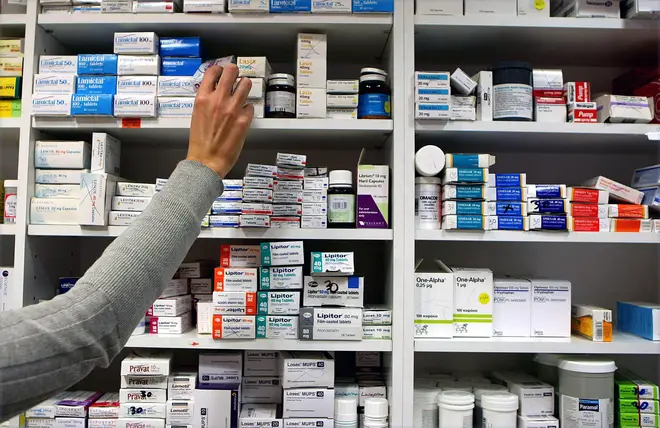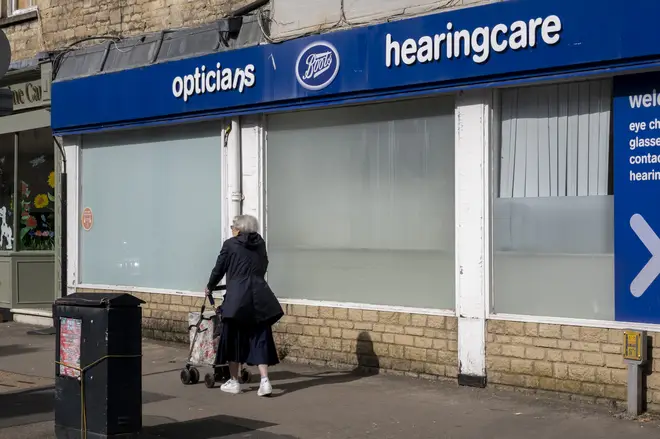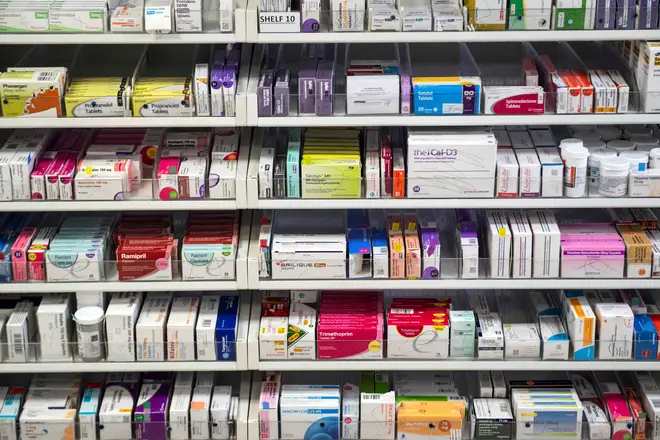
Natasha Devon 6pm - 9pm
18 April 2024, 10:22 | Updated: 18 April 2024, 16:25

A report is warning the UK's medicine supply chain is "broken" with drug shortages becoming the "new normal" in Britain.
Experts described shortages for items such antibiotics and medication for epilepsy as a "shocking development" that is heaping pressure on patients, GPs and pharmacists.
The government has been urged to carry out a review after new research found the impact of Brexit has worsened the issue in recent years.
However ministers insist the majority of medicines are in good supply.

Research by the think tank Nuffield Trust says since leaving the EU in January 2020, shortages have become the "new normal", including for antibiotics and epilepsy drugs.
Pharmacy leaders also warned that they are unable to plan ahead to support patients due to a lack of communication with officials.
Research by think tank, which was funded by the Health Foundation, highlighted "underlying fragilities" in both the global and UK medicine supply chain.
It said while problems in the UK were not caused by Brexit, leaving the EU has exacerbated them.
This is due to the fall in the value of sterling and the UK being removed from EU supply chains.

The government insists most drugs are available but Dr Leyla Hannbeck, chief executive of the Association of Independent Multiple Pharmacies (AIMp), told LBC News that ministers are missing the point.
She said: "What we're seeing is an increase in the number of medicines out of stock, and we've been highlighting this issue for two years.
"As demand for a medicine goes up, the supply chain can't handle that.
"Pharmacists on average spend around two hours per day chasing stock, so perhaps Ministers want to get their facts right."
"The Government and the Department of Health need to acknowledge that there is a problem...I'd ask them to come and experience it on the front line to see how it actually is.
"The processes in place must be reviewed and there needs to be much better communication - but acknowledging the problem is the first step."
A Department of Health and Social Care spokesperson said: "There are around 14,000 licensed medicines and the overwhelming majority are in good supply.
"Medicine supply issues do not only affect the UK, and we have a range of well-established processes and tools to manage them when they do occur. That's why most supply issues have been swiftly managed with minimal disruption to patients.
"Our priority is to ensure patients continue to get the treatments they need, which is why we work with industry, the NHS, and others to ensure patients continue to have access to an alternative treatment until their usual product is back in stock."
Read more: Sainsbury’s sacks worker of 20 years after he took bags for life without paying when he was 'tired'